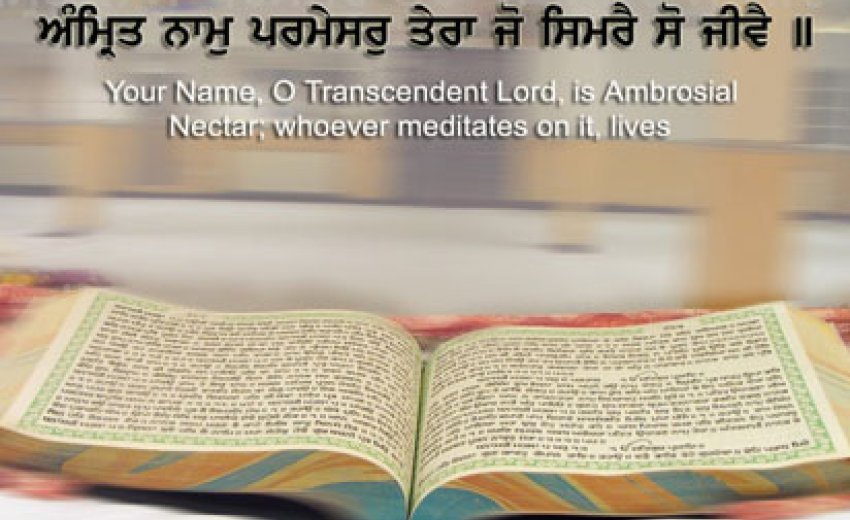A Reflection on the Message of Sri Guru Granth Sahib
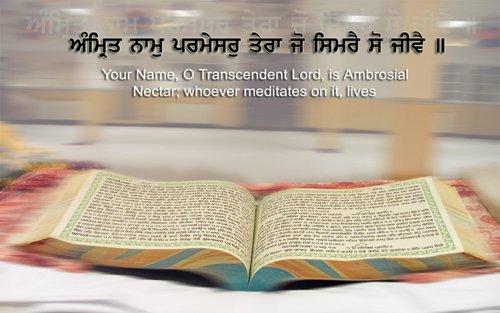 |
| Photo Credit: Chardi Kalaa Foundation |
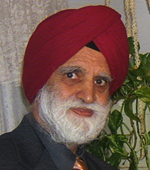 |
| Dr. Inder Jit Singh |
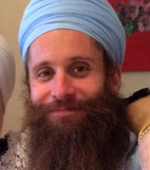 |
| Gurumustuk Singh |
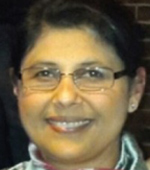 |
| Dr. Inderjit N. Kaur |
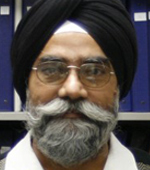 |
| Dr. Satpal Singh |
Dr. Satpal Singh spoke about “The Concept of Mukti in the Sri Guru Granth Sahib.” Dr. Singh made a significant clarification that ritual is part of our physical being, not our spiritual being. We are on a journey of souls, not body. So ritual will only serve our human (exterior) life, but not do much for our soul and spiritual journey. Dr. Singh illuminated another major misconception that mukti is something one attains after death. He stated, rather, that mukti is to be attained while we are alive. Dr. Satpal Singh described “mukti” as being one with and merging with Waheguru.
Dr. Satpal Singh stated that rituals are not necessary and we should stop outsourcing the “akhand path,” which is the continuous reading of the entire Sri Guru Granth Sahib. He shared a significant point: the blessing bestowed on the person reciting the Bani during the akhand path, does not and can not, be transferred to the one who is outsourcing it. Dr. Singh further stated that you can not barter a deal for mukti and that your actions will determine it. He noted that it is the difference between general admiration versus sycophancy. He also shared the need for a contemporary comparative. Dr. Satpal Singh advised that we need to meditate to overcome our weaknesses; we need to turn on the light to get rid of the darkness.
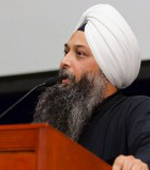 |
| Jarnail Singh |
Jarnail Singh shared his views on “How to Win the Battle Within.” He spoke of the human weaknesses explained earlier and how it is necessary to overcome them in order to attain mukti. He elaborated on how we become trapped by our senses by overindulging in negative thoughts and behaviors that subsequently lead to negative consequences. Jarnail Singh explained that just as the body will show the negative effects of eating too much unhealthy food, so, too, will the mind and body show the signs of negative thought. Jarnail Singh advised that we must turn inward to monitor these thoughts in order to win our internal battle.
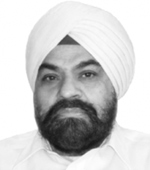 |
| Ravinder Singh Taneja |
Ravinder Singh Taneja lectured on the topic “Being and Becoming a Sikh – - A Journey In Consciousness.” He stated that the truth is always there, you just see a different perspective of it. He noted that human life is often described as an “opportunity.” Thus, as we progress from “being” a Sikh to “becoming” a Sikh, there is something to be done, so we must engage in the “doing.” Taneja stated that the quality of any outcome is based on the state of our inner awareness. He spoke of “jagyasa” which may be explained as the art of questioning and examining our lives and monitoring our thoughts. Taneja stated that it is the quality of our attention that will transform us. Ravinder Singh Taneja shared that when you see the world as one and united, you will then see the patterns and interrelationships serving a larger purpose.
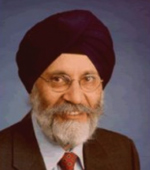 |
| Dr. Inder Mohan Singh |
Dr. Inder Mohan Singh lectured on the topic “The Pursuit of Happiness.” He advised us to not remember God only when things go wrong, but rather use God like a steering wheel, instead of a spare tire which is used only when the need arises. He noted that we take many things for granted and that gratitude is a strategy for happiness. Dr. Inder Mohan Singh shared the profound insight that “As long as there is anger, hurt or a grudge against any one, we cannot be at peace with our self, and true happiness will elude us. We hurt our self in body, mind and spirit.” He encouraged us to work to overcome negative thoughts, for in the Gurbani, love is at the center of everything. He discussed that happiness comes from giving more than receiving.
Dr. Inder Mohan Singh shared a graph outlining the human journey from “manmukh” to “gurmukh.” As one progresses on this journey, the writer asked, given that we come from our creator, would we not begin our journey from a more neutral place, than that of being a manmukh? Dr. Inder Mohan Singh’s response was that the point from which we begin this journey would be unique for each individual.
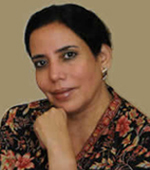 |
| Jessi Kaur |
Jessi Kaur’s presentation focused on the topic of “Hurt, Betrayal and Forgiveness.” She stated that at one time or another, many of us have felt betrayed or deceived by someone close to us. However, it is necessary that we forgive those who have deeply hurt and betrayed us. Otherwise, we become bitter. She explained that when an apology is accepted, there is room for a relationship to continue. However, if destructive behavior persists after an apology, there is no basis for any relationship to continue. Sadly some relationships must come to an end and we need to recognize and accept this, as we move on. One of the questions turned to the subject of domestic abuse. This is a matter of concern and requires further attention so that it may be addressed appropriately.
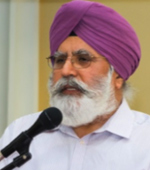 |
| Dr. Gurinder Pal Singh |
Dr. Gurinder Pal Singh’s lecture was on “Education Delivery: A Framework According to Gurbani.” He stated that Sikhs and education have never been connected but that they are intimately connected. Dr. Singh explained how the Common Core Standards in education require students to critically examine what they read, as well as, the processes used to get results in math and science. This has already been incorporated in the Sri Guru Granth Sahib. He spoke of how song, music and poetry talent could be redirected towards education. Dr. Singh conferred the need for good teachers and mentors. He shared that education is for everyone. Dr. Gurinder Pal Singh summarized by stating that Gurbani provides us with a comprehensive framework for designing a modern education system.
The conference presented various perspectives on the message of the Sri Guru Granth Sahib and applying it in our lives. The continuity in flow of speakers was excellent as the speeches served to complement each other. We extend our gratitude to the conference organizers for their great care and dedication in orchestrating this enlightening and inspirational event. Appropriately, the conference concluded with a discussion regarding education, as it is the educational process that will inform what we choose to learn about ourselves and the methods we make use of to share this knowledge with our children and members of our universal community. This will serve as the foundation for our collective transformational journey, as we continue the Sikh legacy.
To read the papers and bios of the speakers please CLICK HERE
